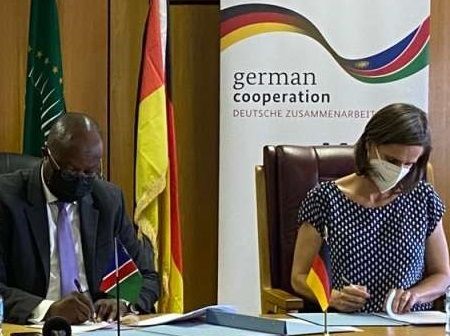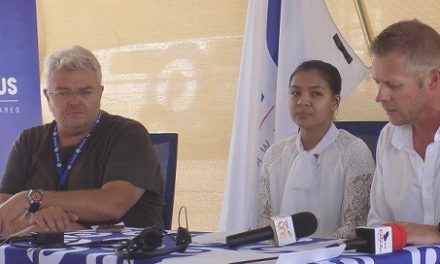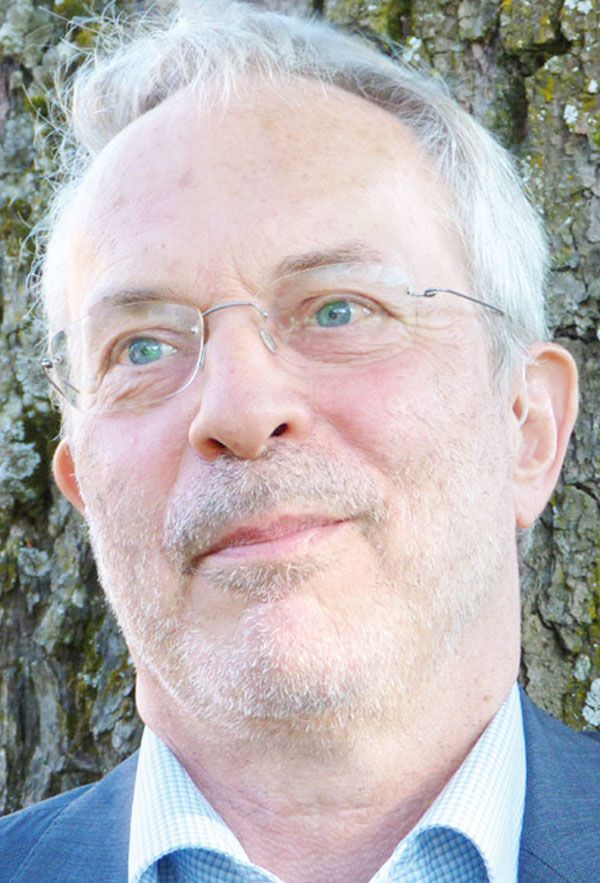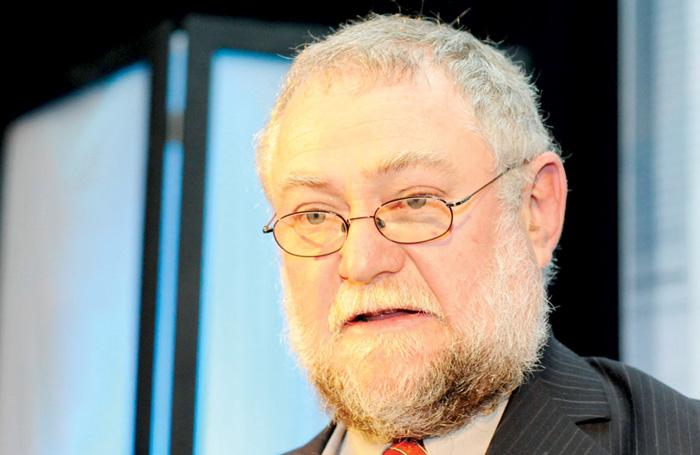
58 MW electricity store brings grid stability and cheaper energy

An agreement was signed in Windhoek this week for the financing of Namibia’s first industrial-scale battery energy store which will ultimately improve the stability of the national grid, substitute imports, make Van Eck redundant, and lower the cost of electricity.
The bilateral agreement between the German and Namibian governments, released funding of €20 million from the Kreditanstallt fuer Wiederaufbau (KfW) to NamPower, the utility responsible from execution and implementation.
NamPower Managing Director, Kahenge Haulofu said that this project will help the utility to achieve the 80% target for self-generation by 2023 under the National Energy Policy. It will also contribute to reaching the 70% renewable target by 2030.
In a joint statement released on Friday 17 December 2021, the funding and implementing partners said the money is for Namibia’s first-ever utility scale Battery Energy Storage System (BESS).
The funding covers the construction of a 58 MW/72MWh BESS plant at the Omburu substation near Omaruru. About one fifth of the total project cost will be covered by NamPower. Their contribution will be used for the construction of the transmission interconnector, and for various rates and taxes not included in the funding under the bilateral agreement.
“Once commissioned, NamPower will be able to utilise a combination of various applications which were identified for the Omburu BESS, namely peak shifting, energy arbitrage, provision of emergency energy, ramp-rate control and reactive power control,” the partners stated.
This battery will be the largest such system in southern Africa to date.
Having a battery storage facility will enable NamPower to participate actively in electricity trade between the 12 members of the Southern African Power Pool.
Since it will also enhance grid stability, it opens the door for foreign investment in more renewable energy projects.
National Planning Commission Director General, Obed Kandjoze (left) and KfW Country Director, Barbara Pirich.
















































